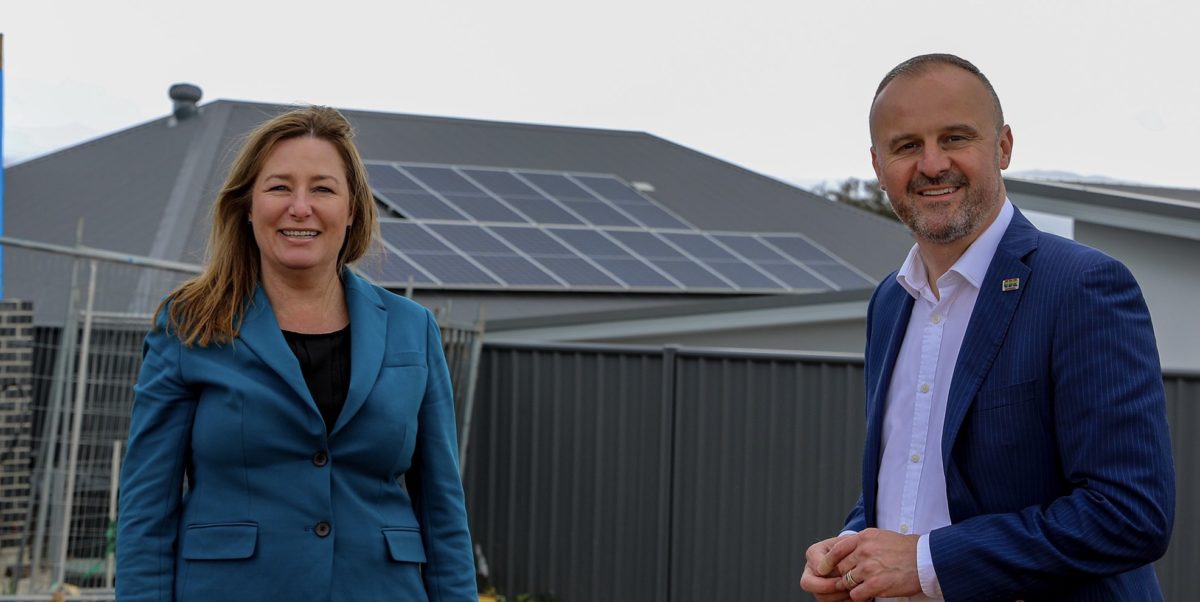ACT Labor have promised a city-wide network of batteries with a capacity of “at least 250 MW” through a $100 million investment over five years if reelected in October.
A 250 MW battery network would far exceed the Tesla Big Battery in South Australia, officially known as the Hornsdale Power Reserve which recently completed a 50% expansion to take its capacity to 150 MW. The pledge is part of ACT Labor’s desire for the territory to be globally recognised for renewable energy innovation and investment.
If re-elected next month, ACT Labor will start work to deliver one of the biggest renewable battery storage systems in Australia.
ACT Labor’s Big Canberra Battery will deliver at least 250MW of battery storage – ensuring lower electricity prices and a more resilient power grid. pic.twitter.com/CCAzDpRicD
— Andrew Barr MLA (@ABarrMLA) September 29, 2020
The proposed battery network is already off to a decent start thanks to ACT’s recent reverse auction wins which will see two batteries of at least 50 MW and 10 MW each constructed by Neoen Australia and Global Power Generation (GPG) to accompany the ACT’s purchase of their wind farm generated energy.
The ACT Government’s success in its fifth reverse auction means that for the big batteries left to acquire it will follow the same method. Moreover, ACT Chief Minister Andrew Barr wants the the citywide network of batteries to be open to private integrators as well. Barr told WIN News that if you have, for instance, a large industrial roof space, universities, non-government schools, then you could install solar panels and a battery and participate in the network.
Barr told the ABC that investors big and small are welcome, “we want to ensure that there are opportunities or those who want to get a guaranteed return in terms of an investment in renewable energy and battery storage to be able to do so.”
The open network approach further differentiates the potential citywide battery network from the Hornsdale Power Reserve (a single site battery), because unlike Hornsdale, which was ostensibly commissioned because of South Australia’s dramatic reliability problems, for the ACT the primary benefit of the battery network would be financial. The ACT Government, like anyone else who contributes their energy storage, expects to make money.
Secondary to making money (and indeed putting downward pressure on power prices), Barr did point out that coal fired power plants in NSW are coming to the end of their life, and those with some years left still struggle to generate effectively with summer temperatures continuing to rise, leading to load shedding events.
Energy Systems Research Fellow at the University of Melbourne Dylan McConnell told ABC Radio Canberra that peak electricity demand has been close to 600 MW on Canberra’s most stinking hot summer days.
“So if you’re thinking about having enough capacity to service your own needs, then having something like a 250 MW battery would be incredibly valuable,” said McConnell.
Canberra Liberals leader Alistair Coe has not directly responded to ACT Labor’s promise, but told the ABC that Canberra Liberals’ primary concern is lowering taxes.
The Clean Energy Council (CEC) has already come out in support of the potential battery network, with CEC Chief Kane Thornton saying that it is “great to see a strong commitment by ACT Labor to match its leadership in supporting new renewable energy generation with a big vision for energy storage capability.”
“Battery storage can ensure that energy users have access to clean, low-cost renewable electricity 24/7,” continued Thornton, “and government support can accelerate the deployment as the coast of storage comes down.”
This content is protected by copyright and may not be reused. If you want to cooperate with us and would like to reuse some of our content, please contact: editors@pv-magazine.com.









By submitting this form you agree to pv magazine using your data for the purposes of publishing your comment.
Your personal data will only be disclosed or otherwise transmitted to third parties for the purposes of spam filtering or if this is necessary for technical maintenance of the website. Any other transfer to third parties will not take place unless this is justified on the basis of applicable data protection regulations or if pv magazine is legally obliged to do so.
You may revoke this consent at any time with effect for the future, in which case your personal data will be deleted immediately. Otherwise, your data will be deleted if pv magazine has processed your request or the purpose of data storage is fulfilled.
Further information on data privacy can be found in our Data Protection Policy.